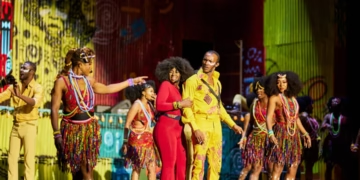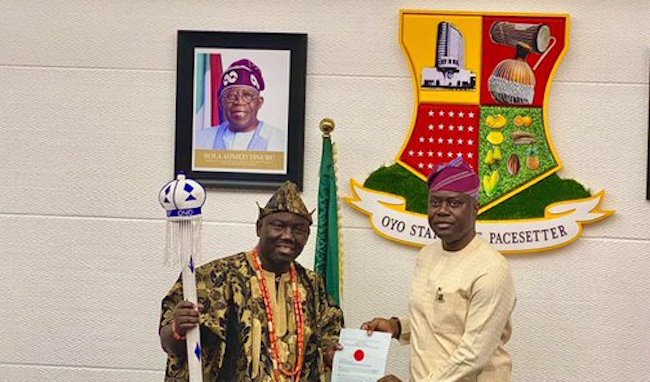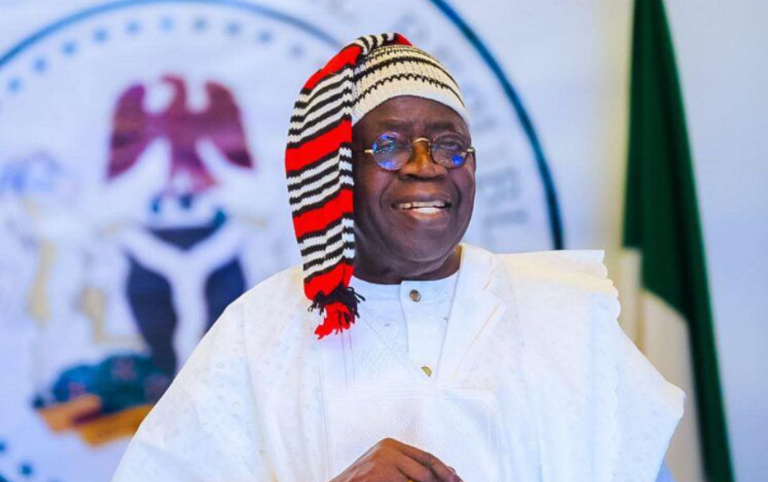In Yorubaland, death has never been viewed as an ending. Rather, it is a continuation of existence; a transition from the visible world of the living (aye) to the invisible realm of the ancestors (orun).
For centuries, burial in Yoruba society has been more than a ritual; it is a spiritual homecoming, a final rite that binds the living and the dead in an unbroken chain of memory, reverence, and identity.
Also read: Madam Olaniyi burial stirs emotions in Osogbo with royal farewell
A Worldview Where Death Walks Softly
The Yoruba believe that life is a cycle; birth, death, and rebirth. When someone dies, especially someone old and respected, it’s not seen as tragedy but as a return. They’ve “gone to the other side.” But how that return is managed matters deeply.
Traditionally, only those who died what is called a “good death”; peacefully, at a ripe age, surrounded by family, received full burial honours. Deaths by accident, suicide, or under suspicious conditions often required special cleansing rituals to prevent spiritual disturbances.
Burial as Community Performance
In the days before colonialism, burials were deeply communal. People came from far and wide. Drummers played ancestral rhythms; women ululated; masquerades danced. Each element had a purpose; not just to honour the dead but to help their spirit find the way home.
In towns like Ile-Ife, Oyo, and Ijebu, kings and chiefs had elaborate, sacred burials. These were not public spectacles but private rituals carried out by palace priests. The Ọba was more than a ruler; he was a bridge between worlds. His burial followed secret protocols, often hidden from the public eye, sometimes taking days or even weeks.
Commoners were typically buried within their family compound, especially in rural areas. Even today, you’ll still find graves right beside the home, under mango trees, or behind kitchen walls; constant reminders that the ancestors are always close.
The dead become Egungun (ancestral spirits), appearing in festivals and family prayers.
Men, Women, and the Afterlife
Gender mattered in burial traditions. Women, especially elderly mothers or respected priestesses, had their own rites. Their bodies might be bathed in herbs, wrapped in symbolic cloths, and buried at night in quiet dignity. For men, especially hunters, warriors, or babalawos (diviners), charms and spiritual tools were often buried with them.
But status counted, too. A person who lived a solitary or troubled life might not get all the rites. This wasn’t punishment—it was spiritual precaution.
Religion Arrives and the Rituals Shift
By the 19th century, with Islam and Christianity making inroads, burial practices began to evolve. Muslims brought the janazah prayer and same-day burial custom. Christians, influenced by missionaries, started using coffins and church services.
Still, many Yoruba families quietly blended old and new. It’s not unusual for someone to receive a church service by day and an etutu (sacrifice or appeasement) by night. Even the most devout Christians or Muslims might whisper a prayer to their ancestor before burying a loved one.
Modern Funerals: A Show of Love and Legacy
Today, burial in Yorubaland is often a major event. It’s a celebration of life as much as a mourning of loss. Families wear coordinated outfits (aso ebi), cater food for hundreds, and hire bands to play both gospel and Fuji. The ceremonies can span days; wake-keeping, service, burial, and thanksgiving.
Some families wait weeks or months to bury the dead, ensuring the send-off is worthy of the person’s legacy. Social media invitations, obituary magazines, and even live-streamed funerals have now entered the mix.
And yet, even with all the glamour, you’ll still find someone; often an elder, whispering a libation into the earth, calling the name of the one who’s passed, asking them to rest well and watch over those left behind.
The Ancestors Never Really Leave
In the end, burial in Yoruba culture is not about closure; it’s about connection. The dead become Egungun (ancestral spirits), appearing in festivals and family prayers. Their memories are kept alive through names, songs, and stories. They are gone, but not forgotten. Buried, but not absent.
Also read: Burial arrangements announced for late influencer Monalisa Stephen
So, when a Yoruba person says, “He has gone to be with the ancestors,” it’s not just a phrase. It’s an affirmation that the soul lives on, honoured and remembered; forever woven into the spiritual fabric of the family and the land.

Ojelabi, the publisher of Freelanews, is an award winning and professionally trained mass communicator, who writes ruthlessly about pop culture, religion, politics and entertainment.
























